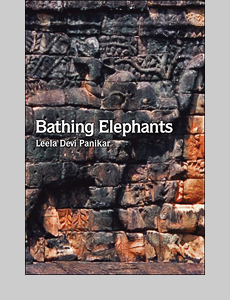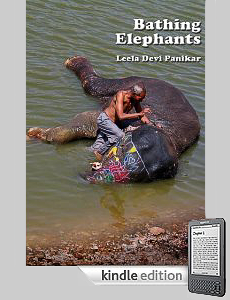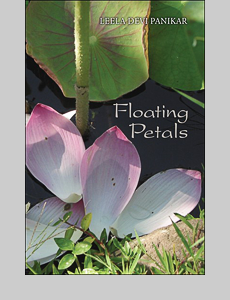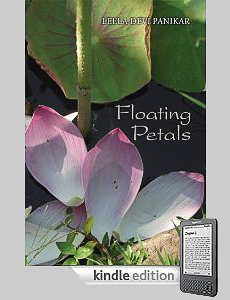Arundathi Roy
The Ministry of Utmost Happiness
“To me, there is nothing higher than fiction. Nothing. It is fundamentally who I am. I am a teller of stories.” Arundhati Roy
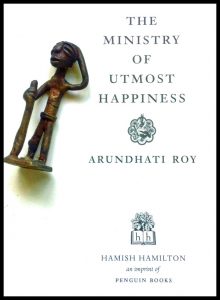
And stories, she tells them well. I have read God of Small Things three times and listened to the audio-book. Each time, the novel overwhelmed me with emotion and passion. Each time, I was struck with admiration and awe for this fine writer. Each time, structure and the depth of her story, her language and detailed observation amazed me.
She is a fine essayist too, and has written a great deal of political non-fiction. The Algebra of Infinite Justice (2002) is an eye-opener. She is a daring fighter for the cause of the downtrodden and the marginalized in India, and has led protests for the causes she believes in. She has endured threats and lawsuits. She has an in-depth knowledge of India and its history. She is also a global philosopher.
This second novel, The Ministry of Utmost Happiness, a 445-page hardcover, fearless attempt at part fiction, part history, part politics, is an ambitious project bound up in social and political angst. She dazzles us with much beauty, and exposes herself brilliantly with amazing storytelling skills. From time to time the writing is poetic, the language colourful and unique, showing detail and acute observation.
But much of the book introduces a glut of characters with their unpronounceable Muslim and Hindu names, slowing readers down. We come across a large number of place names unfamiliar to most English readers. Further confusion is added with generous splashings of dialogue, poetry and quotes in Hindi, Sanskrit and Urdu … I think. It becomes a little tedious. The book covers vast swathes of history, and with this much information, a reasonable clarity of momentum cannot be maintained.
The first part gives us deep insight into the lives of the marginalised Hijra. It introduces, clarifies to the reader, the culture of genders other than male and female and the cruelty they suffer. Brilliantly written is the section on how Anjum makes a home in a cemetery which then becomes a colony for anyone seeking refuge form ‘Dunia’, the male/female world.
The Ministry of Utmost Happiness feels like three novels in one:
The story described above could easily be Book One.
We have Toli’s story, about a former architecture student closely resembling the author, and her mother’s story, transparently biographical. The Tilo-Musa love story could be Book Two.
And Book Three could recount the India/Kashmir/Pakistan tug of war with all its horrors.
There is much narration, and a feeling of information overload. Though all plots are tied up, the work feels laboured.
The many stories of India’s 70-year history, stories bound up with a vast number of different people, different languages, different religions and different cultures, is too diverse to be the subject of one book and one telling. It begins to border on the tedious, and makes for a vast continent of confusion. We go back to the partition of India and Pakistan, we cover the Pakistan-Bangladesh war, we get glimpses of the Sikh massacre after Indra Gandhi’s assassination. There is the Bhopal disaster, the Poolam Devi story, the Maoist revolution, the Hindu-Muslim riots and atrocities of Gujarat, the emergency, terrorism, the treatment of Dalits. There are classes, castes and different genders. Horrors and brutality abound.
I can understand the author’s anger at the way minorities have been treated. She speaks with passion about outrageous atrocities carried out by both sides in the Indian-administered Kashmir tug of war with the pro-Pakistan Kashmiris.
Though the events are woven together seamlessly, there comes a point when one begins to feel enough is enough.
The Ministry of Utmost Happiness is one of Utmost Misery. Almost relentlessly so.
My last visit to Kashmir was one of joy and peace. I found the Kashmir Valley and mountains of great beauty, of hospitable people, Moghul gardens filled with rose scents and the riotous colours of flowers, tranquil lakes and shikaras (small boats), houseboats and snow-covered mountains, clear streams. I can compare The Ministry of Utmost Happiness to this valley with expanses of beauty, but tamped down with soldiers and police, terrorists and jihadis, informants and torture, horrors and killings, spies and counterspies.
Now that she has covered the political history of India, here’s hoping this brilliant writer gives us stories of a less complicated kind.


